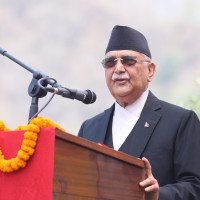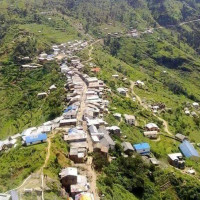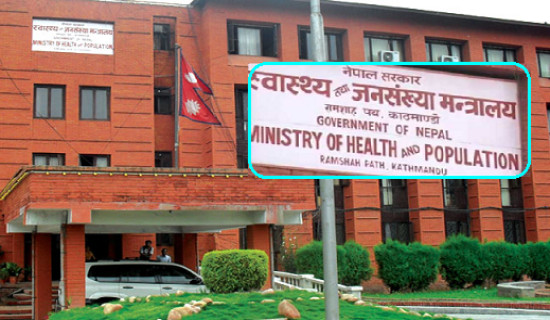- Friday, 18 April 2025
Caring For Environment
In the past few days, Kathmandu, the capital city of Nepal, had consistently ranked first with its highest Air Quality Index (AQI). Now that the city has experienced some rain, the ranking has gone down. Air pollution has become a major problem in Nepal, especially in urban centres. In the case of Kathmandu, its bowl-shaped structure is regarded as a key reason for its hazardous level of air pollution. But let’s not forget the uncontrolled anthropogenic activities, too. The cases like burning of crops and wastes, forest fires and excessive vehicular emissions are some of the major reasons why the air remains toxic.
Kathmandu’s notoriously high ranking indicates that air pollution now remains a core problem. A research by the ICIMOD shows that, of 90 days, Kathmandu has suffered from pollution for 75 days. And this time, the pollution has transcended to other parts of the country as well.
From the perspective of human health, the effects of air pollution are harrowing. Research shows that it is decreasing the average age of people by 4.8 per cent. Polluted air poses health issues like respiratory health problems, burning of eyes and long exposure can even lead to increased risk of lung cancer and various other types of cancer. High levels of particulate matter (PM) in the air can also cause environmental problems like acid rain, climate change and ecosystem damage as a whole.
But the government’s response to this burning issue has not been up to the mark. At the public level, the majority of people are either not aware or indifferent to the effects of air pollution. Even when the AQI exceeded 350, many people were outdoors without their masks on, just like any other regular day. For the people who were aware, they used surgical masks which are not considered fit to filter out the particulate matter (PM) like the KN95. The Ministry of Health and Population just issued a notice asking people not to leave home during this health emergency. This was not an adequate measure. The government needs coming up with effective sustainable measures to fight air pollution.
It has been reported that the government has been collecting taxes under the heading of air pollution control for years now. But they collected about Rs. 25 billion from consumers as a pollution charge on the fossil fuels. But no solid step seems to have been taken so far to tackle this grave problem. Now that the air pollution is also putting pressure on the country’s tourism industry, too, this issue must not be taken lightly. We need to reform our existing practices and head towards sustainable environment management. The prevailing policies on pollution must be implemented in letter and spirit to bring about noticeable changes.
Nepal has made progress in increasing wildlife conservation and forest cover. The nation’s aspiration to steward international matters globally requires a strategic approach to tackling the worsening problem of air pollution. It should now start showing equal commitment towards tackling this issue. Even controlling the current anthropogenic activities can help make a significant difference. In view of the rising air pollution’s adverse impact on the health sector, the three tiers of government must work together along with experts to better regulate the current situation. We cannot just wait for nature to balance out the environment on its own and let more damage happen in the meantime.





-(1)-(1)-square-thumb.jpg)











